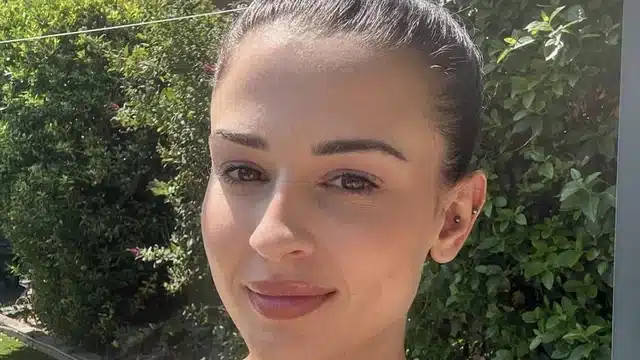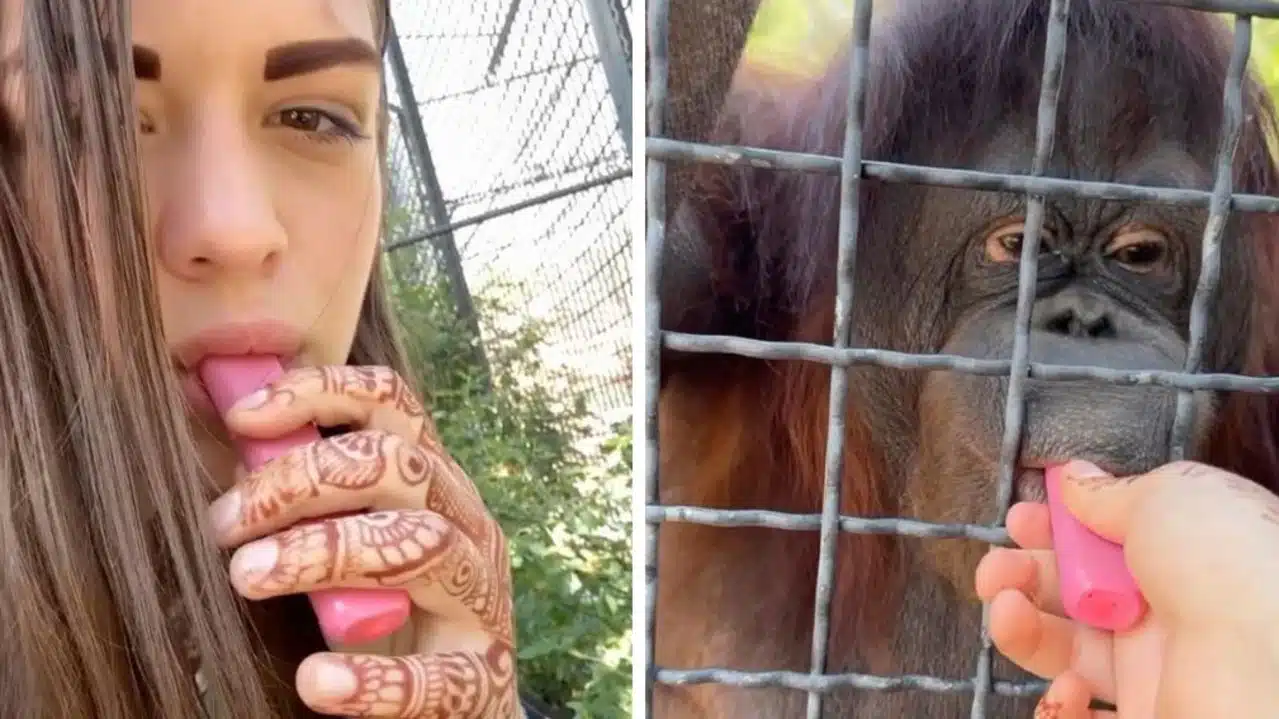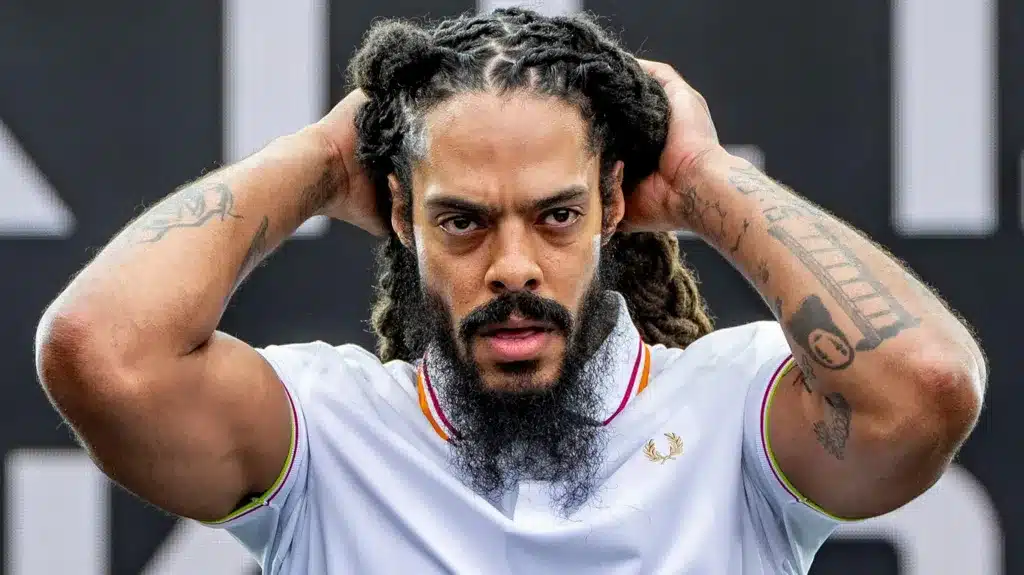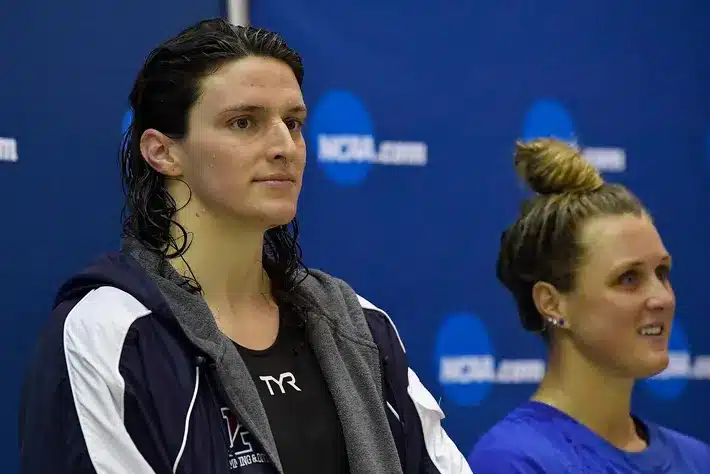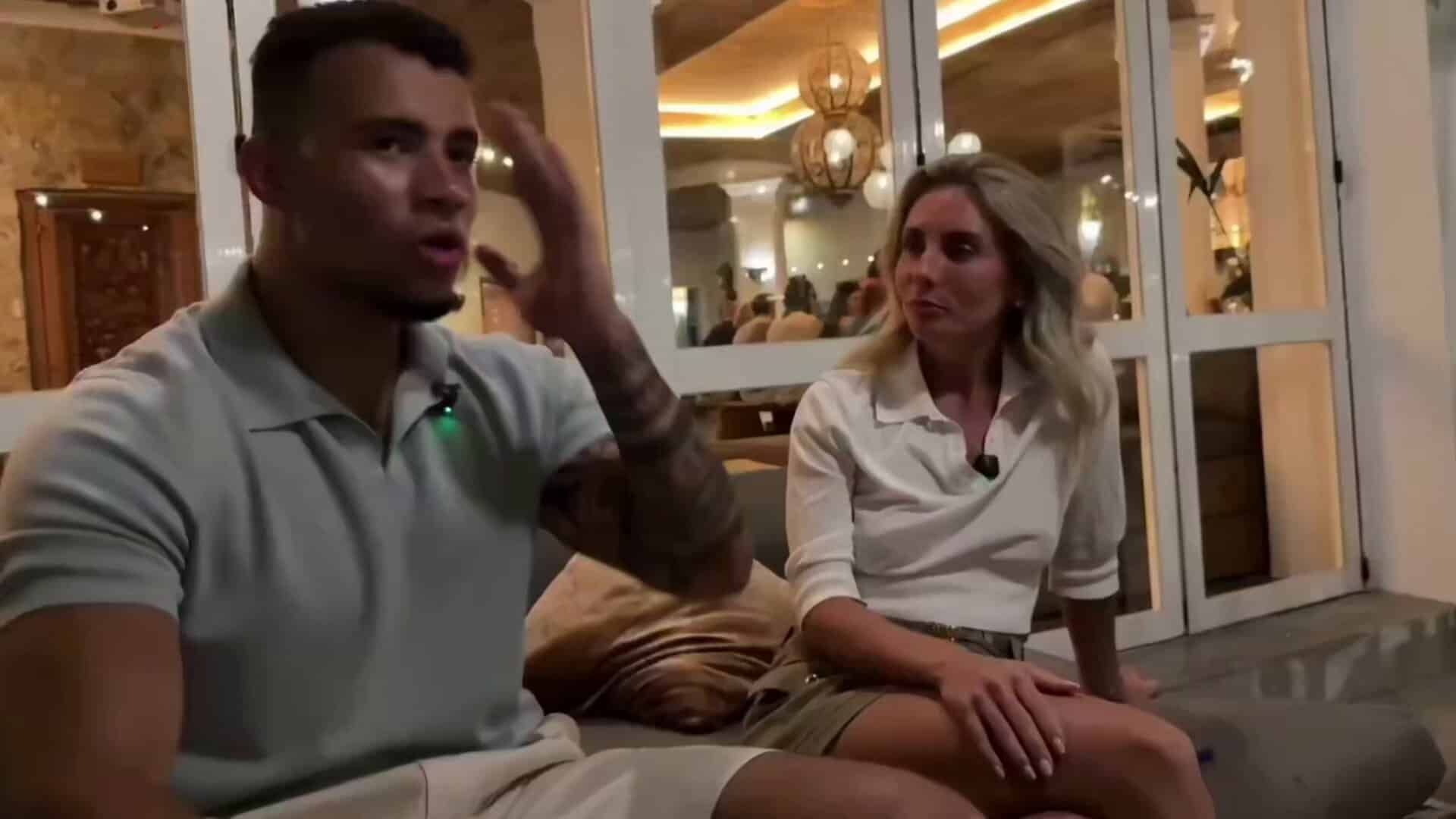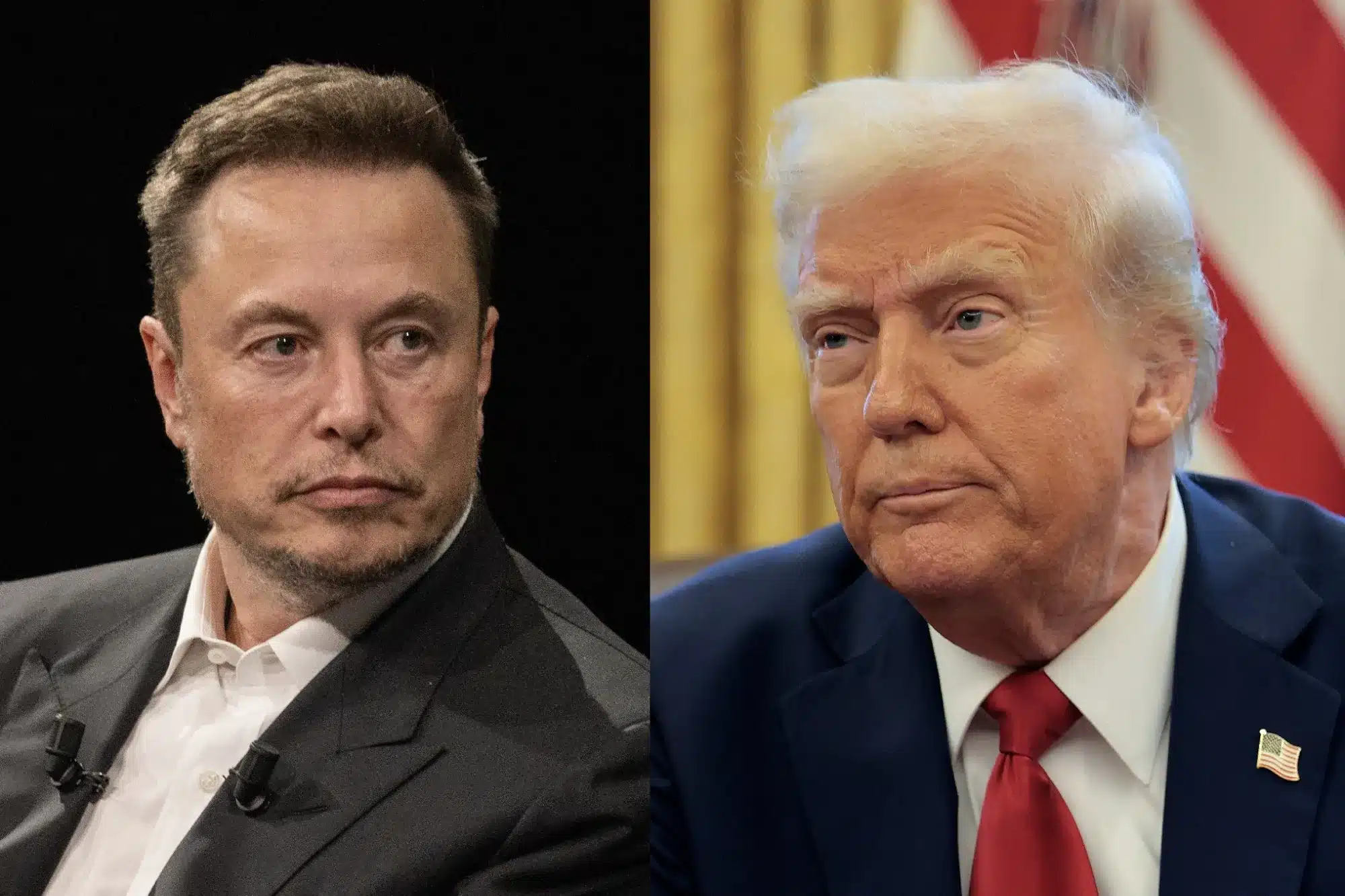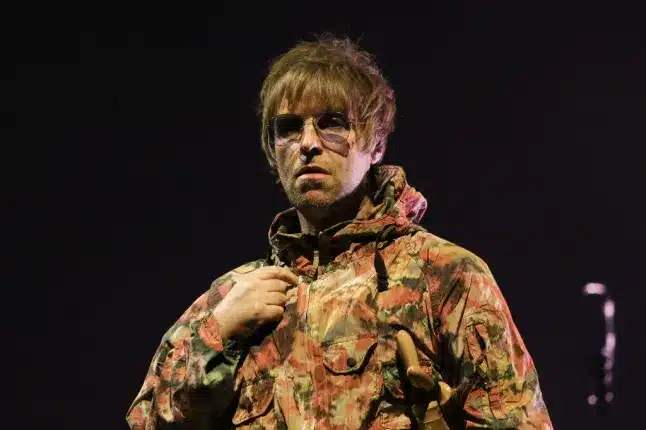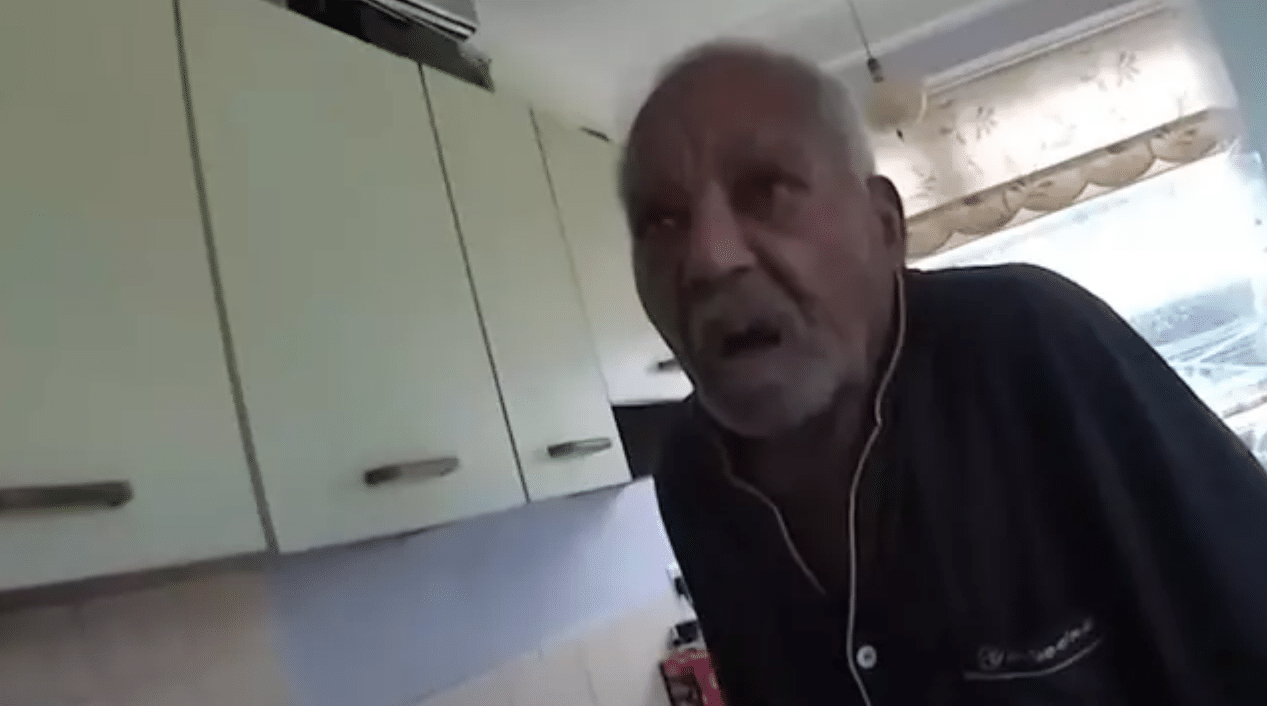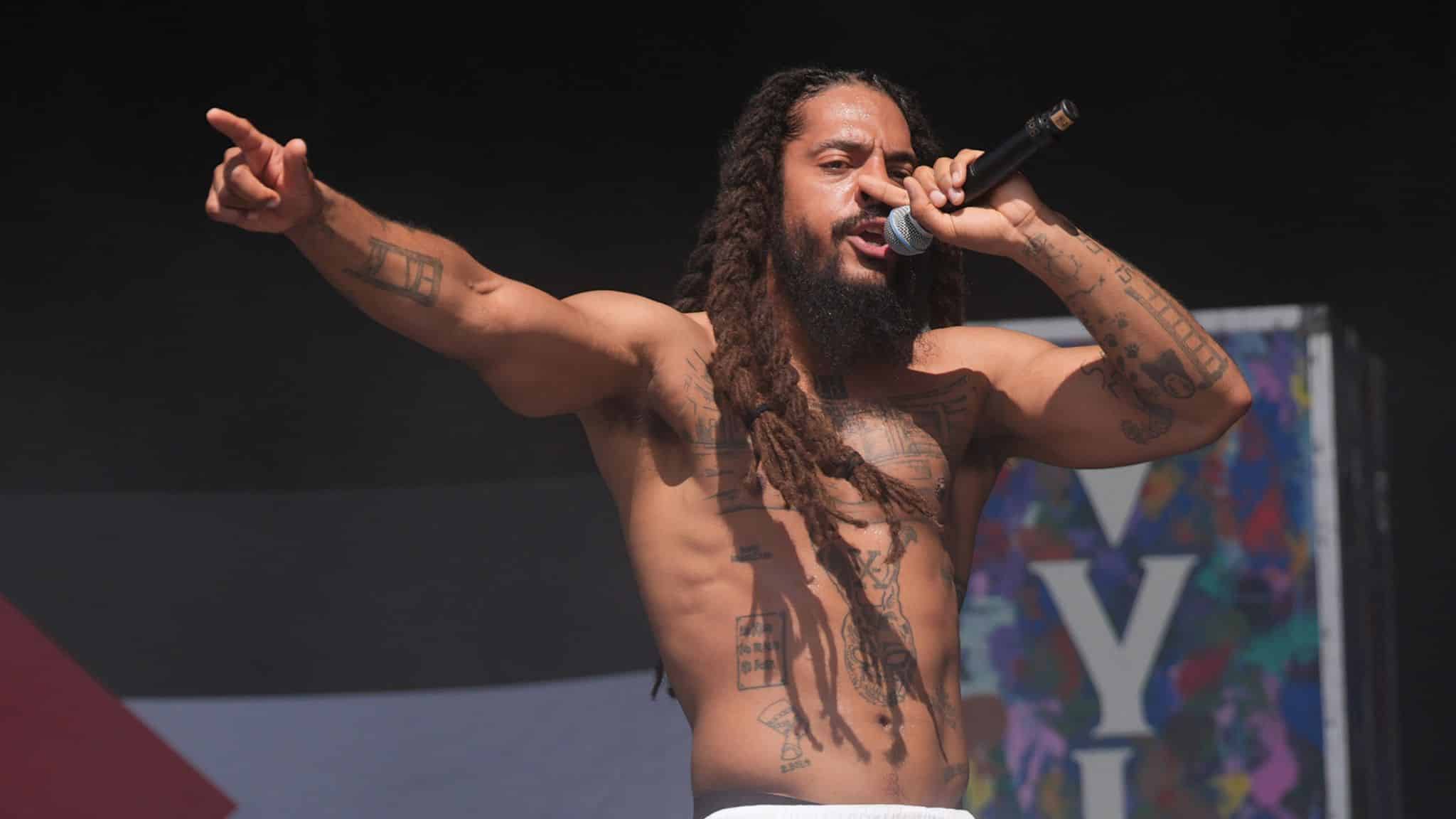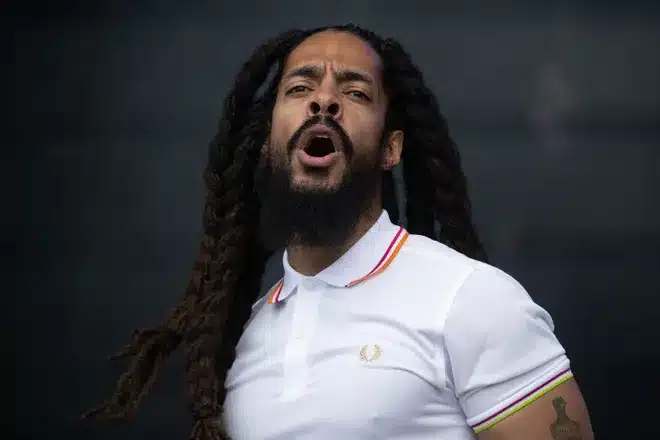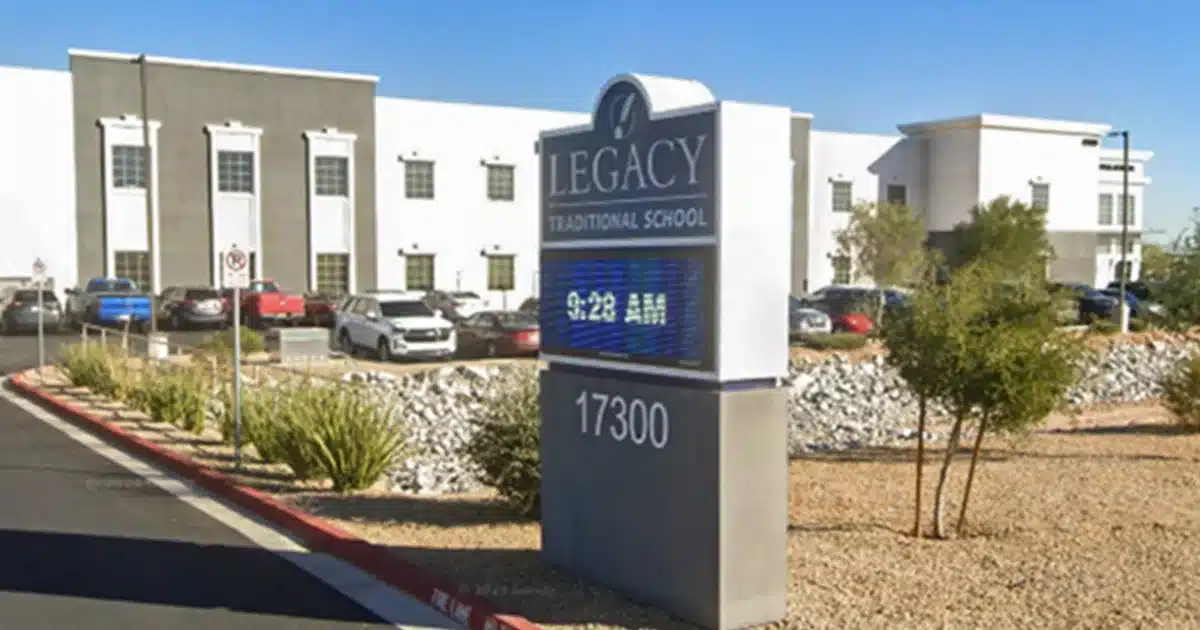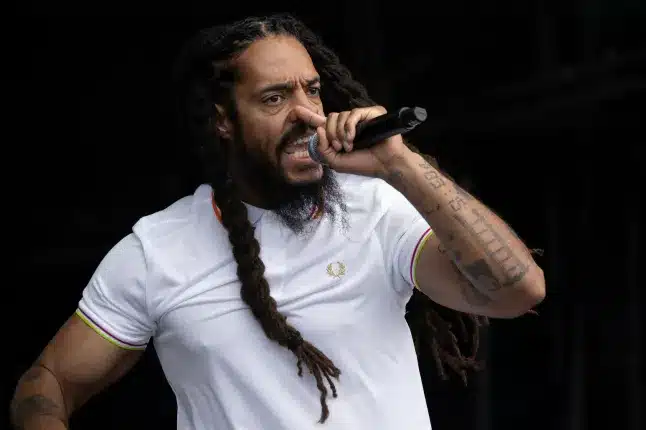I was listening to The Modern Age (The Strokes) with my mom in the car on the way to school when I was seven and I knew it was cool as fxck – and that’s when I decided I wanted to learn how to play guitar.
Such a statement has probably been uttered by countless aspiring infant rock stars over the past twenty years, but it’s a bit more surprising when you hear it coming from the mouth of Green Day frontman Billie Joe Armstrong’s youngest son Jakob. Surely you would imagine being in the presence of one of the most iconic and charismatic singers in the history of rock n roll would be more than enough of an inspiration for his own kid to start strumming away on the old six string?
Featured Image VIA
This however wasn’t the case and instead it was Julian Casablancas and the gang that first spoke to Jakob in this way and to be honest his musical career is off to a much better start because of it. The influence of The Strokes and other bands prevalent in the mid 00s New York indie boom is more than apparent on his band Ultra Q’s debut album ‘My Guardian Angel’, which was recently released on Royal Mountain Records on June 8th. To say that this record is merely Strokes worship though would be doing it a great disservice, as the album successfully combines elements of shoegaze, indie, punk rock, emo, grunge, dreampop and even drum n bass to create a truly unique body of work – and one that you couldn’t really imagine Jakob’s illustrious father even coming close to producing over the course of his epic career.
This eclecticism can be seen quite clearly on the first single that dropped for the album, a track titled ‘I Watched Them Go’. Jakob himself describes it as a drum n bass song and Kerrang! perhaps lazily labelled it as a Waterparks B-side in their review of the album, and the truth is probably found somewhere in between those two statements. The major difference between the two bands here is that Waterparks frontman Awsten Knight tends to be loud, brash, in your face and even a bit whiney with the majority of his songs, whereas Jakob and Ultra Q are a lot more subtle and considered within their soundscapes.
The end result is much more of a dreampop vibe on the track, even with a relentless breakbeat thrashing around at the forefront of the mix. Take a listen to ‘I Watched Them Go’ below:
If that was the first song that you heard on ‘My Guardian Angel’, then you might expect that the whole record would be some kind of ambient drum and bass/dreampop collaboration, but this couldn’t be further from the truth, illustrated by the very distinct juxtaposition between ‘I Watched Them Go’ and the band’s next single ‘VR Sex’. Jakob describes this song as an ’emo ripper’ and it’s noticeable that the guitars are much higher in the mix than on the previous single and there’s a much more of a fast, punkier vibe to the song, which Jakob says was inspired by him rediscovering his love for My Chemical Romance during the recording process.
Lyrically, ‘VR Sex’ doesn’t really have anything to do with the title of the song, instead dealing with a close friend of the band – completed by bassist Kevin Judd and brothers Enzo and Chris Malaspina on guitars and drums respectively – that was involved in a car accident. This is somewhat surprising as on your first listen it’s easy to assume that it’s just a standard break up song, but Jakob explains that this is all due to his approach to the lyricism in Ultra Q at this point in time:
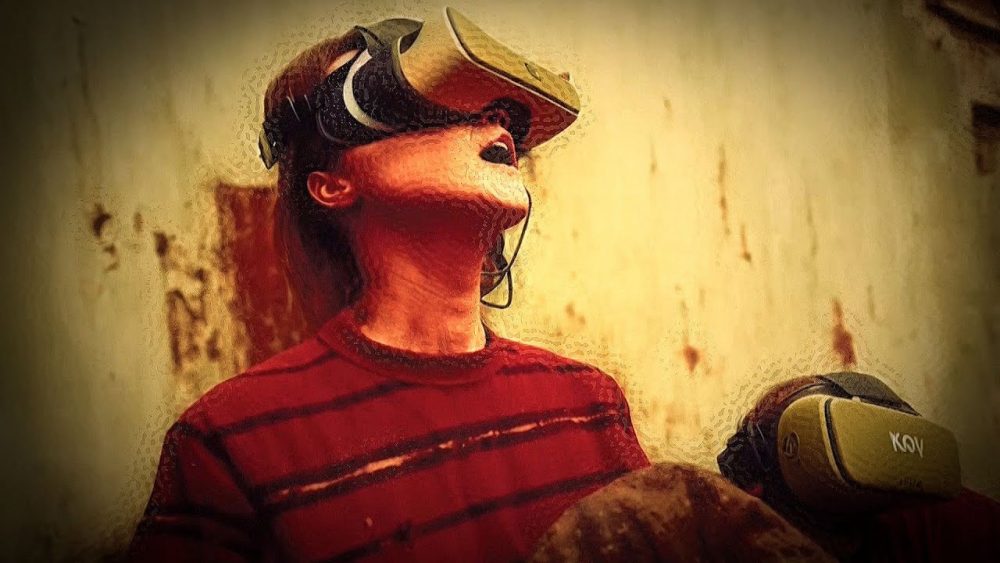
I feel a lot of the times there’s an expectation with lyrics that you have to be very, like, meaningful and impactful, but sometimes I just want junk out there.
There’s moments where you can be truthful and honest, but sometimes you need to use your imagination and have a little fun with it.
A lot of this record isn’t about something specific, it’s about a feeling at the time, wanting to express frustration or having a cathartic release in writing.
With ‘VR Sex’, it doesn’t seem to me as if the words are lacking in truth, meaning or impact, it’s just that the lyrics come with an air of ambiguity that leaves them open to interpretation from the listener. Or quite simply ‘junk’ as Jakob succinctly puts it.
That idea also clarifies why the lyric ‘I couldn’t stand to look at you’ could be read to be about a romantic partner who had cheated on Jakob with his best mate or something, whereas in reality it’s actually about his friend being laid up all gnarly in a hospital bed after his car accident. The same goes with the line ‘wreck bent out’ referencing the wreckage of a relationship rather than an actual car accident and this can also be applied to the title of the song and its subject matter. Sometimes it’s just not what you think at all.
The lack of precise detail in the lyrics perfectly fits in with the dreampop/shoegazey nature of the record and Ultra Q in general too, as you couldn’t really imagine Jakob namedropping his favourite bar or a specific street in one of these songs a la The Gaslight Anthem or Bruce Springsteen etc. Those sort of bands very much subscribe to the real, lived in particulars of their songwriting and that style of lyricism just wouldn’t fit in with the music that Ultra Q are creating right now – and the songs work all the better for it.
Just listening to those two songs casually, even the most indifferent of music fans would almost certainly notice that the levels of the instrumentation in the mix are considerably different and this is one of the first topics I bring up with Jakob and bassist Kevin Judd when I connected with them via Zoom a couple of weeks ago. The pair have recently woken up at Jakob’s grandmother’s house in Minnesota, the day before their tour with Cloud Nothings and Wavves begins.
They’re more than happy to explain that they’ve always had this idea of variance within the songs, but it was really honed by working with super producer Chris Coady (Yeah Yeah Yeahs, TV On The Radio and Beach House), who has previously helped to create some of their favourite records:
The decisions were made when we were mixing with Chris Coady.
It became very clear during the recording that this wasn’t a straight up four piece indie rock album and it was a bit outside of our comfort zone.
I remember on ‘VR Sex’ I wanted the guitars to be really loud. And on the first track ‘Saturday’ I wanted the bass to be the loudest thing.
Those were choices that were made because we knew we were going to be wrangling in this wild thing for a little bit and Chris really helped us make the choices to achieve what we were demanding from the songs.
That’s all very well in the studio of course, but with all the different levels and sound differences throughout the record, you might be curious as to how easy it is for Ultra Q to play these songs live when the group had traditionally consisted of your typical indie rock band lineup with two guitars, a bass and drums. The pair reveal that they have tried out a few different ways of solving this problem, but currently on this tour the answer is to bring a sampler on stage with them and for Kevin to put his bass down and use that on certain tracks:
I have any bass notes plugged into a four pad and I play that with one hand and my other hand plays the synth lines. I’ve also got another trigger that my pinky activates that play Jakob’s backing vocals on the tracks. It’s definitely a learning experience.
We’re actually just using a sampler on this tour because we’re the opening band – I’ve used a Roland SP midi keyboard in the past though. I’m playing whatever needs to get played but just run on a sampler.
We don’t have as much control over the individual elements, but we’re still playing live every night and there’s no backing tracks in sight.
All the purists out there will no doubt be approving of the news that they’re refusing to use backing tracks, but it’s also easy to think that using a sampler or MIDI keyboard might negatively affect the live output of Ultra Q. If you take a look at the video below of them playing at The New Parish in their hometown of Oakland last November though, then this simply isn’t the case.
This version of ‘I Watched Them Go’ sounds almost better than the recorded version of the song and once again proves that even though Ultra Q might still be finding their feet and treating everything as a ‘learning experience’, they’re still learning pretty fast:
The variety of musical styles present on the record also naturally leads into a conversation about genre and its importance/necessity in the current musical landscape. A landscape that is very different to the one experienced by anyone growing up in the 90s or 00s, one that is determined by algorithms and playlists rather than investing in albums on the basis of recommendations from friends, record store employees or searching through the thanks lists on album sleeves. A bygone era that the members of Ultra Q seem like they would be more than happy to exist in in some ways, but perhaps their music might have a harder time being accepted in.
This question is also pertinent for the band as they’ve previously performed over the past ten years under the band names ‘Jakob Danger’, ‘Danger’ and ‘Mt. Eddy’, but chose to reinvent themselves every time they decided they had outgrown the style, finally settling with their current moniker a few years ago. When asked these questions regarding genre and if the group started making a different style of music in the future that they would simply change the name of the band again, Jakob once more gives an answer that belies his youth, pointing to the history of rock and roll – of which he seems to be an A+ student in – and all that has come before him:
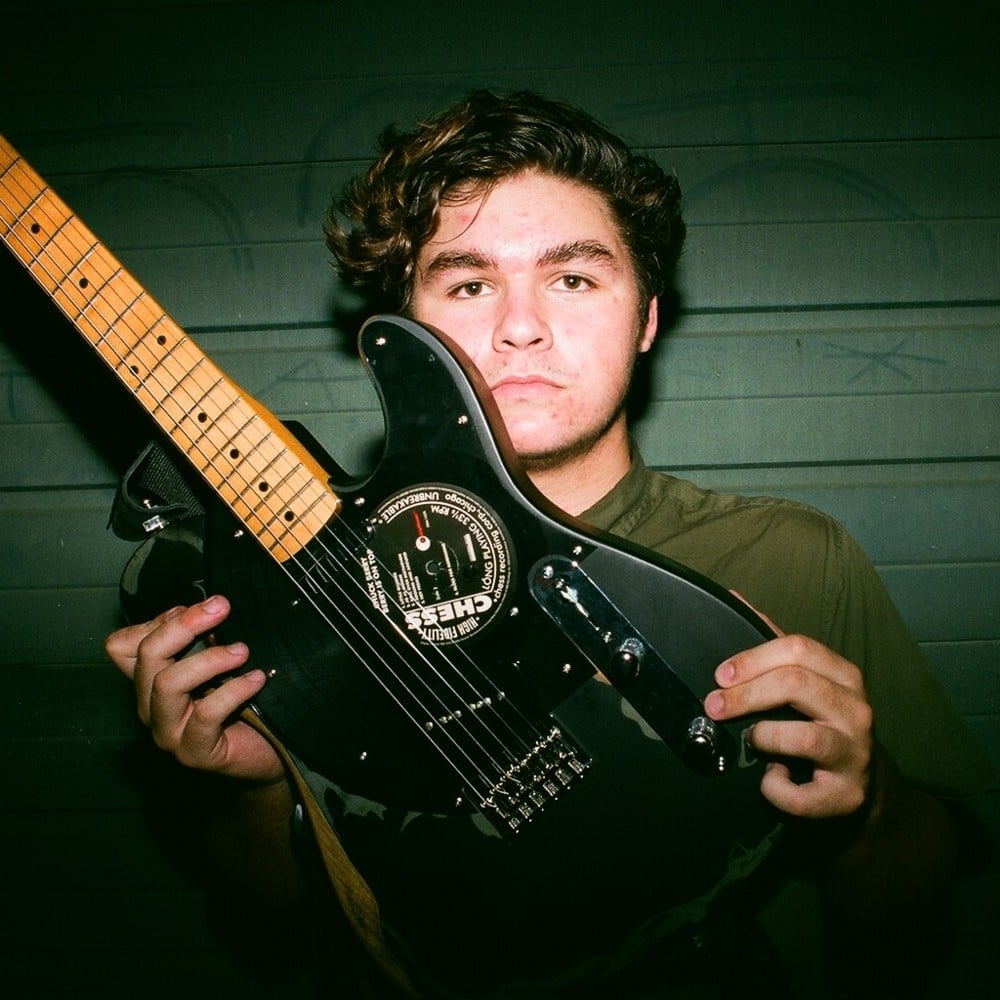
Mt Eddy split up because we all went to college, then when we decided we wanted to make music again that wasn’t the style of music we wanted to make so we changed the name of the band to Ultra Q.
I now feel like it’s gonna pretty much always be Ultra Q because I feel like what’s so great about it is that even if, let’s say, I decide I want to make a metal album, I feel like Ultra Q has room in the name for that, because we’ve already established that we can just do whatever we want.
I’m taking inspiration from my favourite band The Cure, who just do whatever they want too. One of the things that I admire about them the most is that they can go from making like a super dark goth album, like ‘Pornography’ to making a classic pop album on the door, you know?
I think that that’s something that we are leaning into and trying to take advantage of too. We have such wide interest in music and so just whatever it is right now is whatever it’s going to be.
I don’t think genre matters so much now because it affords you the freedom to make whatever you want. We can do that with Ultra Q now and bands like The Cure have been doing it for decades.
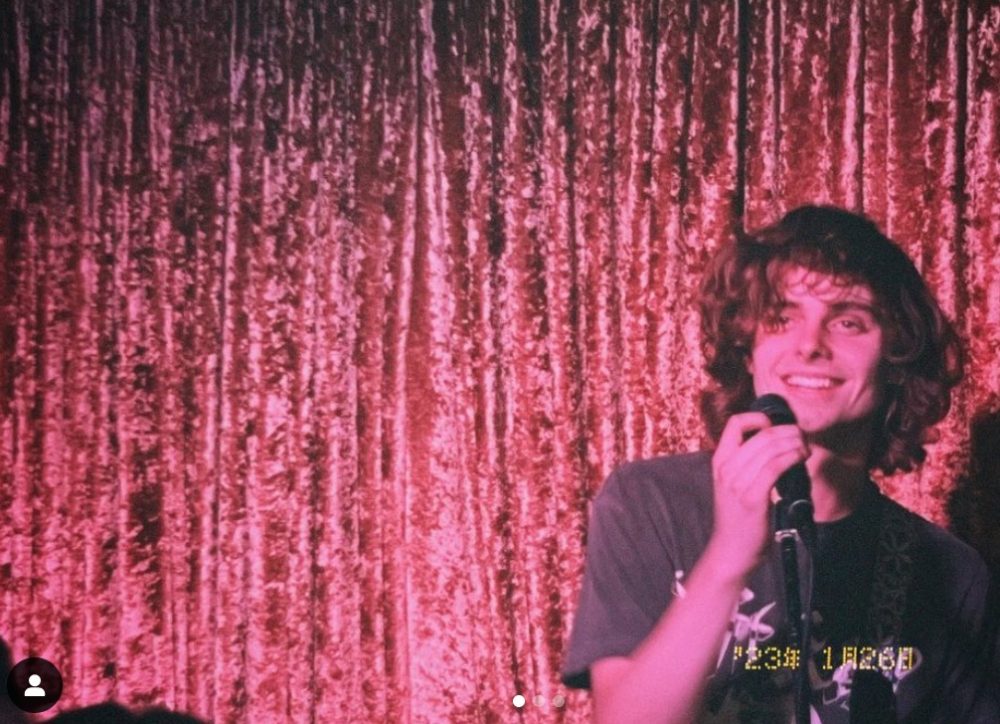
That’s already a great answer but Kevin (above) literally picks up Jakob’s thoughts and finishes his sentence here, offering the following:
Music listening on streaming services compartmentalises music so much more than it used to be, but in other ways genre used to be so strict.
I can imagine it being confusing if someone found us on a playlist and heard one of our songs from three or four years ago that was a straight up hardcore punk song and then listened to one from this album that’s a drum n bass song, but I think that’s all part of the fun now at this moment in time.
It’s an exciting time for bands to do whatever they want.
Even only talking to half of Ultra Q for this brief window on Zoom, you can tell that there’s a real synergy between the members and that they’re 100% on the same page about everything to do with the band and its identity, and especially the way that they respect and honour their rock and roll forefathers that have came before them. This even extends to the fact that Ultra Q is still selling CDs at their shows – I didn’t think anyone even had CD players anymore, but apparently a lot of young kids have them in their cars in the US – and the fact that Kevin actually prefers to listen to music on CDs rather than any other format, as he takes great delight in telling me:
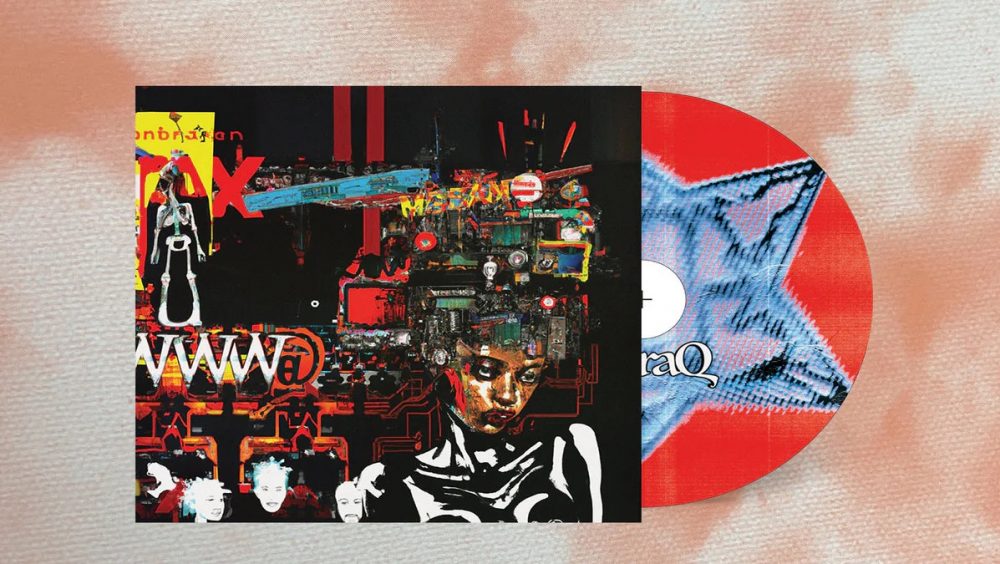
I listen to CDs in my car, and I’ve got a CD player at home too and I listen to that so much more than Spotify.
Vinyl is popular with young people, but people are getting into collecting music and I can buy like 6 CDs for the price of a vinyl and they take up so much less space.
I can collect so much more for so much less.
You can’t actually argue with him when he puts it like that can you?. The sound quality isn’t quite so good sure, but all the other positives that Kevin reeled off sort of balance that out if you’re not a vinyl aficionado. And it seems like a lot of Ultra Q fans aren’t, with the band selling at least a handful of CDs every night on this tour. What a throwback.
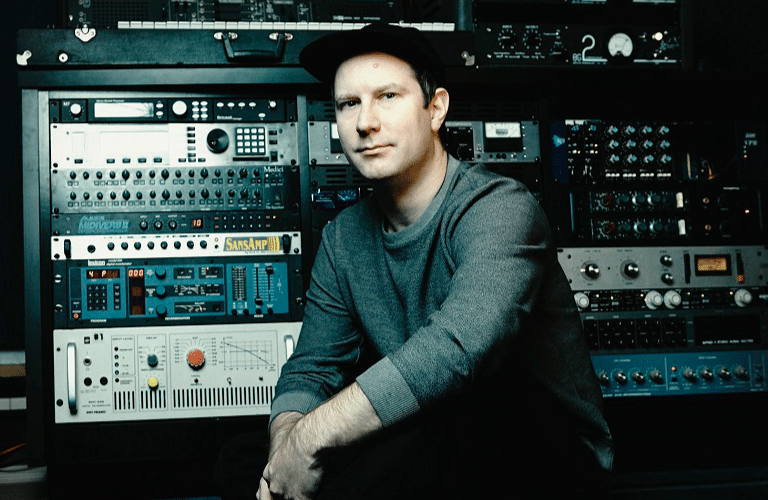
Kevin also seems particularly enthused that Ultra Q were given the opportunity to record their album with Chris Coady (above), explaining that ‘he was just such a talented person to work with’ and that he still has to ‘pinch himself every day’ that the sessions even came about. He elaborates slightly more on the recording process, saying the following:
We met him through our record label and it was just surreal.
We were like freaking out that he wanted to do it.
We just drove down to his studio in LA and stayed in an Air BnB for two weeks.
We did the drums at East West studios in LA. And, you know, we were in the frickin Pet Sounds Beach Boys room!
Speaking to both Kevin and Jakob about tracking the album, it becomes even more clear how passionate, wide eyed and almost star struck they are when it comes to music. That might sound like an odd statement to make, but the music industry tends to have a habit of grinding people down and spitting them out when they’re no longer useful. As such, many of the people I’ve spoken to in the past appear old, cynical and just tired when talking about their new records and the processes they’ve gone through to make them.
Sure, Ultra Q are on their first album cycle and just about to start their first major tour in support of it when I speak to them, but even so they’ve been a band in one format or another for the past decade so their enthusiasm at this point really is refreshing. It also might be expected for someone who has been around the music industry at a high level and probably heard about it all their lives to be a little more jaded (excuse the pun) about it, but Jakob couldn’t be nicer or more excited to talk about this record and Ultra Q’s goals for the future throughout the 45 minutes I have with him.
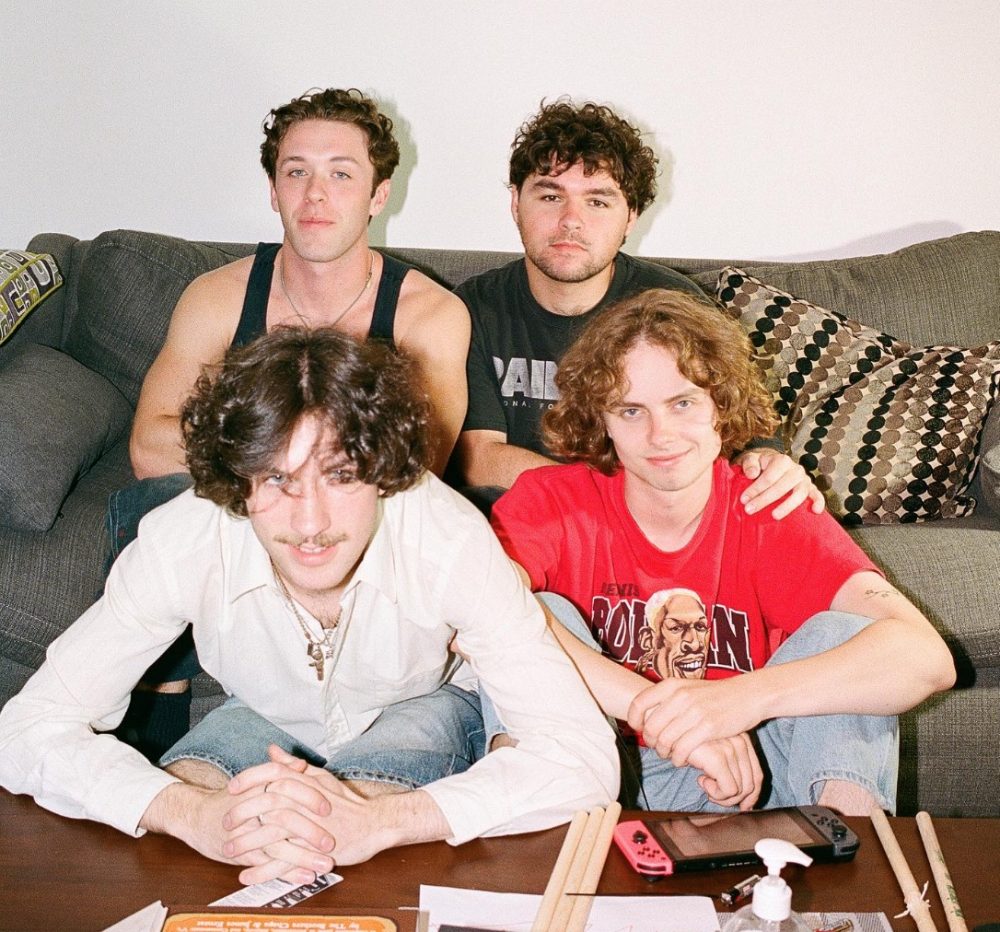
It’s also easy to see that Ultra Q are a band that have really bought into the whole process of being a band. Again, that might sound stupid, but it’s clear that everything they’re doing concerning their aesthetic and presentation is calculated in minuscule detail, beginning with the track listing on ‘My Guardian Angel’. ‘We knew we wanted Wrip (a shogazey, My Bloody Valentine/Nothing esque track) to open up side two of the record’ isn’t a phrase I imagine too many bands use these days – mainly because most of them are more concerned with releasing singles rather than albums – but I suppose that must come down to Kevin’s obsession with CDs.
Of course that isn’t actually the case, as it’s clear that Ultra Q are insanely focussed on every single aspect of their music, marketing and presentation and this is also clear to see in the visual identity that they’ve cultivated in their music videos. Indeed, Jakob espouses just how much he enjoys music videos and how he still sees them as integral in the marketing of a band:
They used to be like, such a great way to kind of get sucked into a band. I can think of so many bands that it was their music video that broke them and that people discovered them that way.
No one had really heard Boys Don’t Cry by The Cure until they they re-released it with a video a decade later and then and all of a sudden, it’s one of the biggest songs ever.
They’re not as impactful now for a variety of reasons like TikTok and social media and a lack of dedicated music channels, but personally I still find them very important.
Ultra Q’s music video identity comes courtesy of AI visual artist KingCon2K11, who is responsible for videos to the three tracks already mentioned in this article as well as ‘Klepto’ and ‘Rocket’, all of which were released before the album dropped. KingCon2K11 – who is actually an Englishman by the name of Connor – was tracked down by guitarist Enzo after he stumbled across his stuff on Instagram and his vision aligned with the band’s so much that he was eventually given carte blanche to do whatever he wanted with the visuals associated with the band.
The results in ‘Klepto’ only add to the mystique behind the band as KingCon2K11 delivers a video of some of his friends driving around a forest, playing guitar and chopping up wood and manages to turn it into a bizarre ‘Evil Dead’ inspired AI nightmare. The song itself is one of the more fast and punky (although Jakob expresses surprise that it was recently played on a Spotify punk playlist, as he intended it to be more of an indie song) ones on the album, but has a guitar line more akin to ‘The Strokes’ driving it along as Jakob repeatedly laments ‘I hear your voice and it breaks my heart’.
Another common theme within the videos aside from the fact that they’re all AI/computer generated is that there’s no real narrative structure to any of them and that they’re just simply a collection of stark and impactful visuals telling their own strange little story. Again, this is deliberate from both the band and KingCon2K11 and pretty much perfectly suits the music they’re making, helping to create their own bizarre shoegaze/dreampop worldviw.
For me, the videos really hark back to the days when you would find weird bands with crazy music videos on 120 minutes on MTV2 super late at night when you were smoking weed and getting high, and subsequently fully immersing yourselves in the four minute worlds that they were creating. In other words, Ultra Q have completely nailed what they’re doing here in a way that few emerging artists seem to have been able to achieve as effectively in recent times.
This hazy, dreamy atmosphere even extends to some of their band photographs, that look almost as if they were taken on fuzzy disposable cameras on days gone by. Once again this retro aesthetic leans into everything good that the band are doing, simultaneously embracing the future whilst also respecting the past.
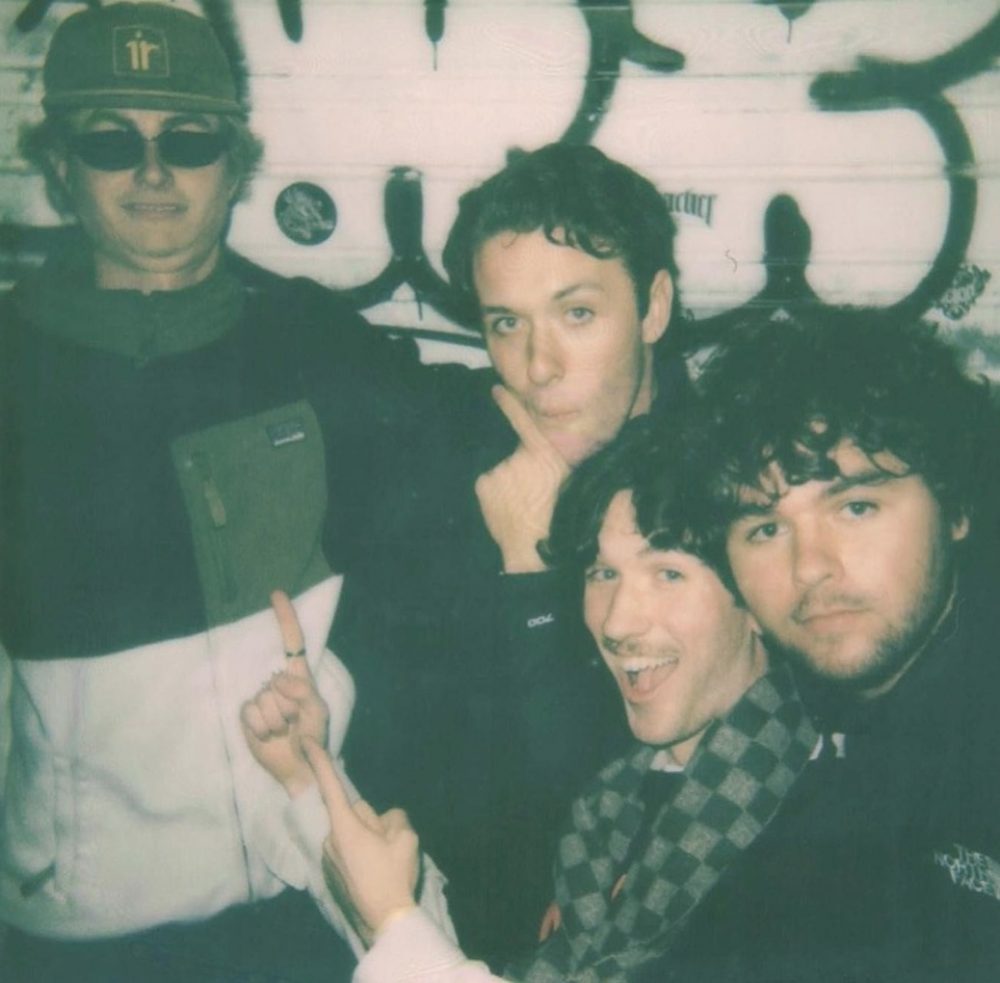
Of course, the fact that Ultra Q is even spending so much time on music videos and establishing a visual identity for their music is another indicator of how hungry they are to create a longstanding legacy with this band and also to achieve this goal in the right fashion like their heroes from yesteryear. Certain music journalists will no doubt accuse them of nepotism at some point, but hearing Jakob talk about how important certain artists and videos were to him growing up and the way that his face lights up when they’re mentioned, you again can’t help but feel that music really does mean a lot to this kid.
You can also tell he’s determined to cement his own position within this space and to do this through emulating his idols of the past. And with the release of ‘My Guardian Angel’ and everything else associated with it, it appears that he’s well on his way. Good luck to the guy – with the passion on display here, I wouldn’t bet against him succeeding.
For more of the same, check out how iDKHOW went from absolute nobodies to becoming the hottest band on the planet in just four years. The secret weapon is the bass guitar.

